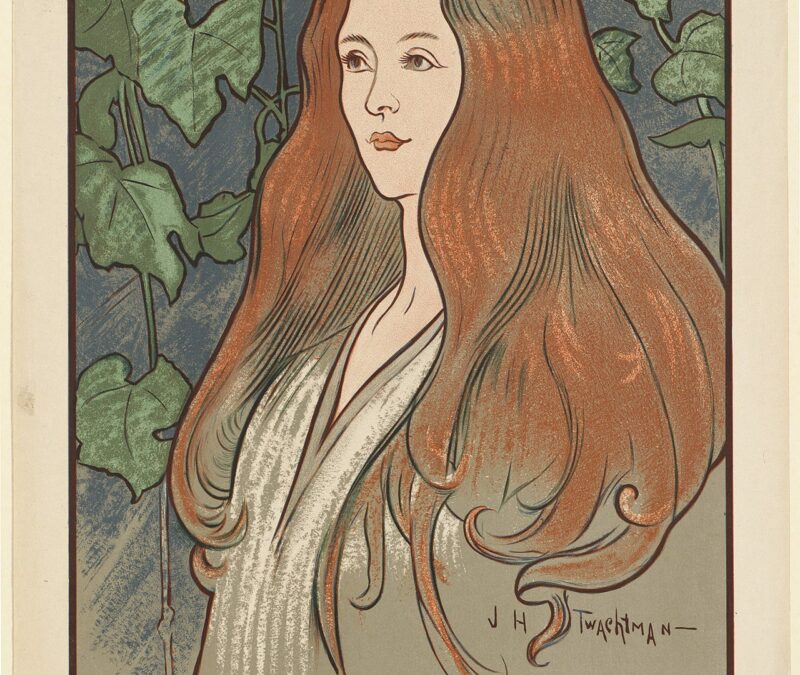Frederic’s The Damnation of Theron Ware, or Illumination, is a satire of American Methodism. The narrative explores the mid-life crisis of Theron Ware, a married Methodist Episcopal pastor who falls for Celia Madden, an Irish Catholic, in a small town in New York State.
During a staid, conservative Methodist camp meeting, Ware sneaks off to visit the Catholics having their September picnic. For a tea-totaling Methodist, this is Hell fueled by thousands drinking beer. At first, his eyes have trouble settling. There was a crowd playing football, another playing baseball, and children squealing and romping. There seemed to be thousands of people on the open fields before him, and apparently there were still other thousands in the fringes of the woods round about. The noises which arose from this multitude—the shouts of the lads in the water, the playful squeals of the girls in the swings, the fused uproar of the more distant crowds, and above all, the diligent, ordered strains of the dance-music proceeding from some invisible distance in the greenwood—charmed his ears with their suggestion of universal merriment. He drew a long breath—half pleasure, half wistful regret—as he remembered that other gathering in the forest which he had left behind.
Accosted by Celia Madden and Father Forbes, a Catholic Priest, Ware explains he’s come to the picnic because he’s bored. Really, he wants to see Celia. “We could barely believe our eyes,” says Father Forbes, “—that it could be you whom we saw, here among the sinners!” Ware answers, “I’ve had five days of the saints over in another part of the woods, and they’ve bored the head off me.”
The thrill of seeing Celia leads Ware deeper into a moral maze. He would like to seduce Celia, but the best he can do is place his head on the folds of her dress. She permits him a chaste kiss on the lips that symbolizes his damnation. “I think you may kiss me, “she says, “in memory of that one day–or of a few minutes in that day,” said Celia. As he leaves Celia, Ware remembers this kiss, an “almost perfunctory caress” for romance. “I go back to my slavery–my double bondage,” Ware sighs, “But even if I am put on the rack for it, I shall have had one day of glory.”
Despite his thirst, Ware never gets to taste the beer. .Food is not mentioned.
Featured Image: John Henry Twachtman. Poster for The Damnation of Theron Ware, or Illumination (1896). Twachtman’s selection of red-haired Cecilia Madden for the poster is an allusion to Lilith, the monstrous woman reputed to be Adam’s first wife.
See Harold Frederic. The Damnation of Theron Ware, or Illumination. Chicago: Stone & Kimball, 1898.

